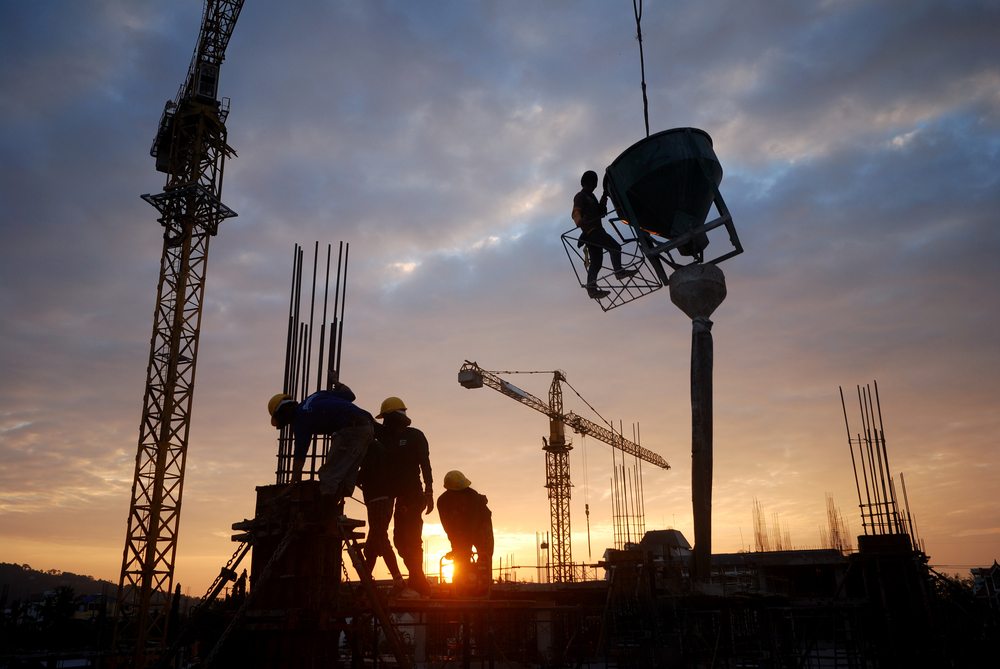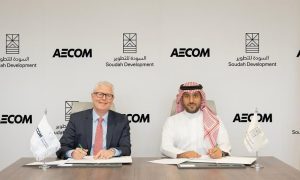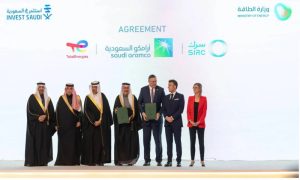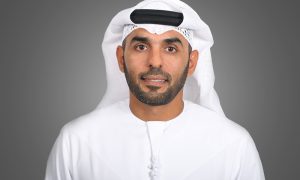Great Expectations
Big Project ME speaks to project management consultants to find out the challenges their sector faces in a construction industry that is in a state of flux

Look at any major construction project and you’ll see thousands of workers on site, hundreds of tonnes of building materials moving in and out of the site and construction schedules that stretch into years. And that doesn’t even consider the cost of construction, the budgets allocated to projects, all of which run into the millions or billions of dollars.
What ties all these disparate functionaries together is often a single individual or company. In fact, it could be said that the project manager is arguably the single most important component on a construction site.
“We are that critical link between the contractor and the client. The client will be looking to us to protect them, their interests and their project, but equally the contractor will be looking at the project manager to ensure that the contract is administered appropriately and that other parties to the project perform as they should,” says Steve Law, regional director of Project Management – MENA for the Sweett Group.
“It comes back to expectations, managing them and responding to each party’s demands and requirements.”
“To do this, the project manager needs to demonstrate a number of critical elements. They need to hold solid technical and contractual awareness, an understanding of roles and responsibilities and where various parties can be pushed. Most importantly, it is the soft skills that differentiate a good project manager from a mediocre one. Key elements like personality, communication, empathy and transparency go a long way in ensuring a smooth operation.”
However, one of the major challenges facing project managers operating in the region is that often their clientele struggle to understand what it is that they can offer. With a number of developers and contractors fixed in the way they operate, the introduction of new methods, systems and technology can be quite an uphill struggle.
“I think you’ll find that most consultants and contractors in the area, in the UAE maybe, are more than happy to adopt anything new because most of them thrive on enhancing their own abilities. But in other areas, no, but it’s a matter of trying to explain and then eventually, with the client’s permission, enforce the use of these systems,” says Mohammed Al Rais, the senior vice president and managing director at Hill International (Middle East).
“I always remember, in Abu Dhabi about six years ago, we were doing a particular project for a client, we introduced a system for the client and there was huge resistance from the contractors. We eventually had 20 of their people in our offices, just to facilitate and train them; and they will not leave that system. They now implement it across the board, on all their projects across the region, and they swear by it. People by nature will always avoid something they don’t understand, something that’s going to cost them. But once they understand how easy it is, and how effective and practical it is, I think everybody will come on board.”
This is something Hossam Al Rashoudi, CEO of Maskan Arabia, a Saudi-based housing developer that provides project management services, says he relates to. Working exclusively in the Saudi Arabian market has exposed his company to a number of issues that he says need to be addressed if the Kingdom is to move its construction industry forwards.
“We have a lot of issues to be honest with you. I speak as a developer, not only as a project manager. A lot of the concerns in the industry today is that new regulations have come up in the past year that will affect a lot of projects. The industry is changing rapidly because of new techniques, new technology, so the project manager has to understand what they are. He has to be updated with things,” he points out.
“Today, in a project, you have a lot of parties that you’re working with. Some of them are government entities, some are clients, so the projects manager has to be sophisticated enough to understand the complexity of the project and how to tackle all the issues and make sure to deliver as anticipated within the budget.”
“Saudi Arabia is really changing very fast. So it’s about proper training, proper education, choosing new systems, but today the issue we’re facing with some of the project managers in the Kingdom, or even outside, is that they’re reluctant to try new methods and techniques.”
As such, the only way to surmount these problems is to push forward with programmes and training that not only educate project managers, but their clients as well.
“We’re going into Oman, into Iraq and we’re there big time,” says Mohammed Al Rais. “What we’re trying to do is bring these systems with us. Instead of them having the requirements, it’s us explaining, opening horizons to what is available and what we can do for them. We’ve started a training programme for Iraq, for example, whereby we’re training our own staff. We have about 75 people in Iraq. We invited, from our clients, members of their teams, and from government entities, to train with us.”
Al Roushadi adds he encourages his project management staff to be more proactive and open to new ideas, which in turn will feed down into their clients, and hopefully spread awareness of what they can bring to the table.
“You cannot go in conventional ways of construction because the costs are increasing, the labour costs are increasing and you don’t have the quality of labour, which has been much less than previous,” he says.
“When I speak to my project managers, I want them to think outside the box, think of it as more of a manufacturing process, make sure that everything is detailed properly, do your plans properly and understand the sophistication of the project, what are the financial restrictions you have. They have to be aware of all the new materials that are coming into the market and they shouldn’t be afraid to test them.”
“Clients are always an obstacle. They’re always wary of new technologies. So it’s about the way you do your process, your workflow, the way you do your activities. If you have proper approval systems from the municipalities, structural safety and everything, then the clients shouldn’t have a problem. However, the project managers here aren’t used to that system and this is why it requires more effort from their side,” he warns.
Steve Law agrees, and says that the management of client expectations is crucial to a project’s success.
“Client expectations are often the single-most tricky element of managing a project. The important point is to support the client in understanding their expectation. They may have high aspirations but are constrained financially, for example.”
“In a number of cases we’ve stepped into projects that are ‘over budget’ and sought to provide alternate solutions to achieve the same quality through differing means – be it introducing new technology and build methods, value engineering or even thorough design reviews.”
Ultimately it comes back to ensuring a client is aware of what the final product is intended to be and that the set budget achieves it, he says.
For this to happen, all three insist that project managers need to be brought in right at the start of the project. This early involvement allows them to map out the needs of the project and work towards a fixed target.
“Bringing PM/CM later in the day is always an issue because then you’re trying to get them to buy into something that they’re not used to, or have used in other projects and all of a sudden there’s this PM coming in trying to enforce certain systems and procedures that they’re not accustomed to.”
“In most of the cases, we do manage and they understand the benefits. Do we still have resistance in certain projects? Absolutely. Does that hinder us? Absolutely. But we try to do the best we can in the circumstances.”

























